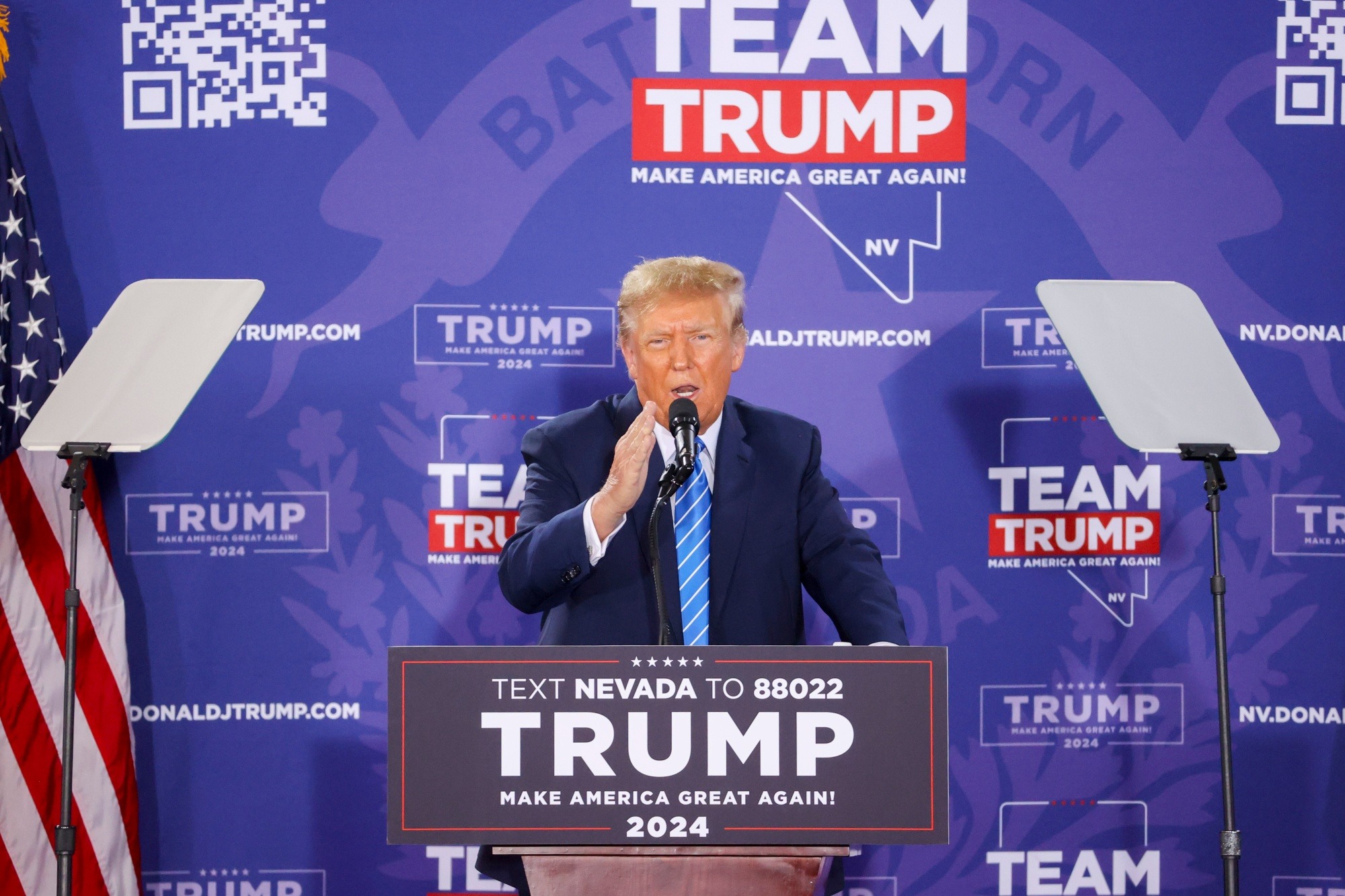In a recent interview with Fox Business, former President Donald Trump declared that if he were to return to the White House, he would not reappoint Jerome Powell as the Federal Reserve chair. Trump characterized Powell as “political” and insinuated that Powell might consider lowering interest rates to benefit Democrats in the upcoming fall elections.
Expressing his suspicions, Trump stated, “I think he’s going to do something to probably help the Democrats, you know, I think if he lowers interest rates.” Powell, who was chosen by Trump as Fed Chair in 2017, has been steering the central bank through critical economic decisions.
These comments from Trump coincide with the Federal Reserve’s contemplation of when to initiate a reduction in interest rates.

Trump Declares (Credits: Bloomberg)
At its recent meeting, the central bank opted to keep rates unchanged, and Powell indicated that the board is unlikely to find sufficient evidence of success in their battle against inflation to commence rate reductions in March.
While Trump’s remarks portray Powell as potentially influenced by political considerations, Powell himself asserted in a news conference last December that the Fed does not factor in political events when determining monetary policy.
He emphasized the commitment to economic well-being, stating, “We don’t think about politics. We think about what’s the right thing to do for the economy.
The minute we start thinking about those things — you know, we just can’t do that. We have to think, what’s the right thing? We’ll do the things that we think are right for the economy when we think is the right time. That’s what we’ll always do.”
The Federal Reserve has been navigating a challenging economic landscape, aiming to strike a balance between addressing inflation concerns and sustaining economic growth. Powell has consistently underscored the importance of making decisions based on economic indicators rather than succumbing to political pressures.
Trump’s stance reflects a divergence of opinions on the Federal Reserve’s role in shaping economic policies, revealing the intricate interplay between monetary policy, politics, and economic stewardship.